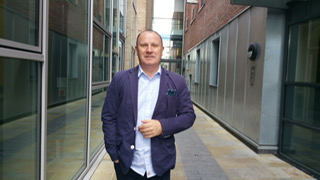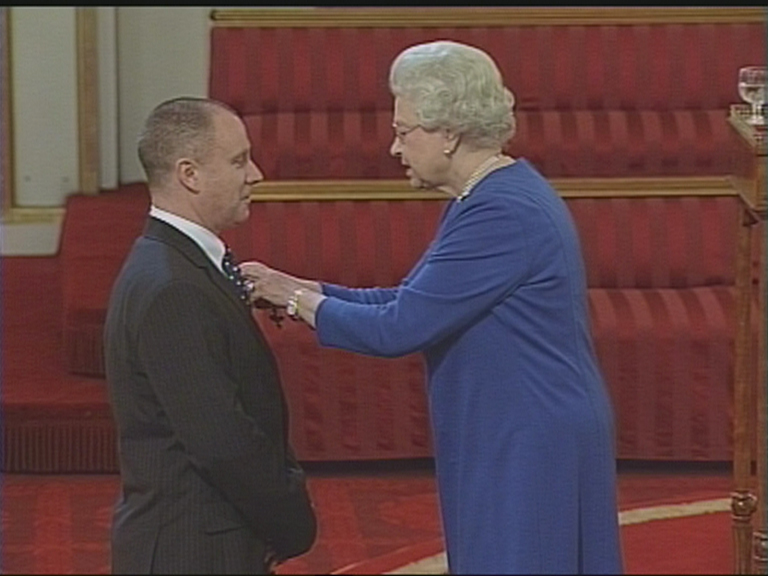
Rev. Dr. Gary Mason
Founder / Director
Gary Mason, is a Methodist Minister, and holds a PhD from the school of Psychology at the University of Ulster. He was also awarded an honorary Doctorate in Divinity for his role in peace building in Ireland, from Florida Southern College. He completed his theological studies at Queens University and holds a Bachelor’s in Business Studies from the University of Ulster.
Gary is a Senior Research Fellow at the Edward Kennedy Institute for Conflict Intervention at Maynooth University in Ireland. He is an visiting adjunct Professor at the Candler School of Theology at Emory University in Atlanta, Gary is an affiliated expert and partner to the Negotiation Strategies Institute, a Harvard University programme on negotiation for Israelis and Palestinians and international diplomats. Gary is an international advisor at the European Wasitia Graduate School for Peace and Conflict Resolution at the University of Flensburg in Germany. Gary is also a visiting academic at the University of Central Florida in conflict transformation, political violence and negotiation. Gary is an advisor to the Woolf Institute, Cambridge and a consultant to the Carter Center in Atlanta, Georgia.
Gary has also given lectures in a number of College, University and denominational settings across the United States from Harvard University, Boston College, Boston University, Tufts University, Emory University, Duke University, University of Alabama, Florida Southern College, Birmingham Southern College, Fairmont State University, Wesleyan WV, Rollins College, St. Cloud University, St. John’s University Minnesota and Hamline University.
Conflict Transformation
Prior to founding Rethinking Conflict, Gary spent 28 years as a clergy person in Belfast and was involved in the “Northern Irish Peace Process.” He has been and continues to be a close advisor to Protestant ex-combatants on the civilianisation efforts of paramilitaries.
Gary was a member of a working party on sectarianism in the early 1990’s drawn together by the Irish Council of Churches, which resulted in the publication “Sectarianism”. This was the most detailed report ever made to the Irish church on this topic. The co-chair of this working party was Mary MacAleese, the former President of Ireland. Mary and her husband Martin are very supportive of Gary’s peace building work.
Gary was also the Methodist representative on the Loyalist Commission, a group consisting of loyalist paramilitaries, community activists and church representatives. This group received international press coverage. In July 2002 the former British Secretary of State Dr. John Reid met the commission at Gary’s church, this was only the second time that an official meeting between paramilitaries and a British Secretary of State, had taken place in the history of the conflict.
In June 2009 two of the loyalist paramilitaries groupings the Ulster Volunteer Force and the Red Hand Commando after almost 35 years of an armed campaign announced the decommissioning of their weapons statement in Gary’s church. They were the only group of ex-combatants to do so in a church setting. In March 2014 Gary was one of five people from Northern Ireland asked to hold a private briefing with President Bill Clinton on his visit to Ireland to discuss the NI peace process.
Recongition of Gary’s Peace Building
Over the years Gary has worked with both Republican and Loyalist communities in peace building and reconciliation. He has facilitated dialogue between these groups on numerous occasions. Behind the scenes he has taken part in discussions with those wedded to violence in Northern Irish society, trying to present an alternative way to resolve their differences.
Gary first engaged with Sinn Fein in the late 1980’s and has maintained these relationships for almost three decades. He has worked closely with Catholic colleagues to build peace and reconciliation. In 1992 to 1999, along with a Catholic Dominican sister, he developed the Forth-spring Community Project. This was a one million pound centre on the peace line in West Belfast, which allowed the two communities to come together during some of the darkest days of the conflict around the Shankill bombing and Greysteel tragedies. He was instrumental in facilitating negotiations with paramilitaries and government officials and in 2007, his contribution to peace building and better community relations was formally recognised by the Queen.
Community Engagement
Gary talks about the importance of the church being out in the community and engaging with it at a grass roots level. He argues strongly that the role of the faith community should always be one of building peace and transforming fragmented communities.
Developing Rethinking Conflict
Since the completion of the Skainos project in 2012, Gary has been increasingly approached both locally, nationally and internationally about sharing his life experiences around social justice, conflict transformation, peace building and addressing religious fundamentalism.
